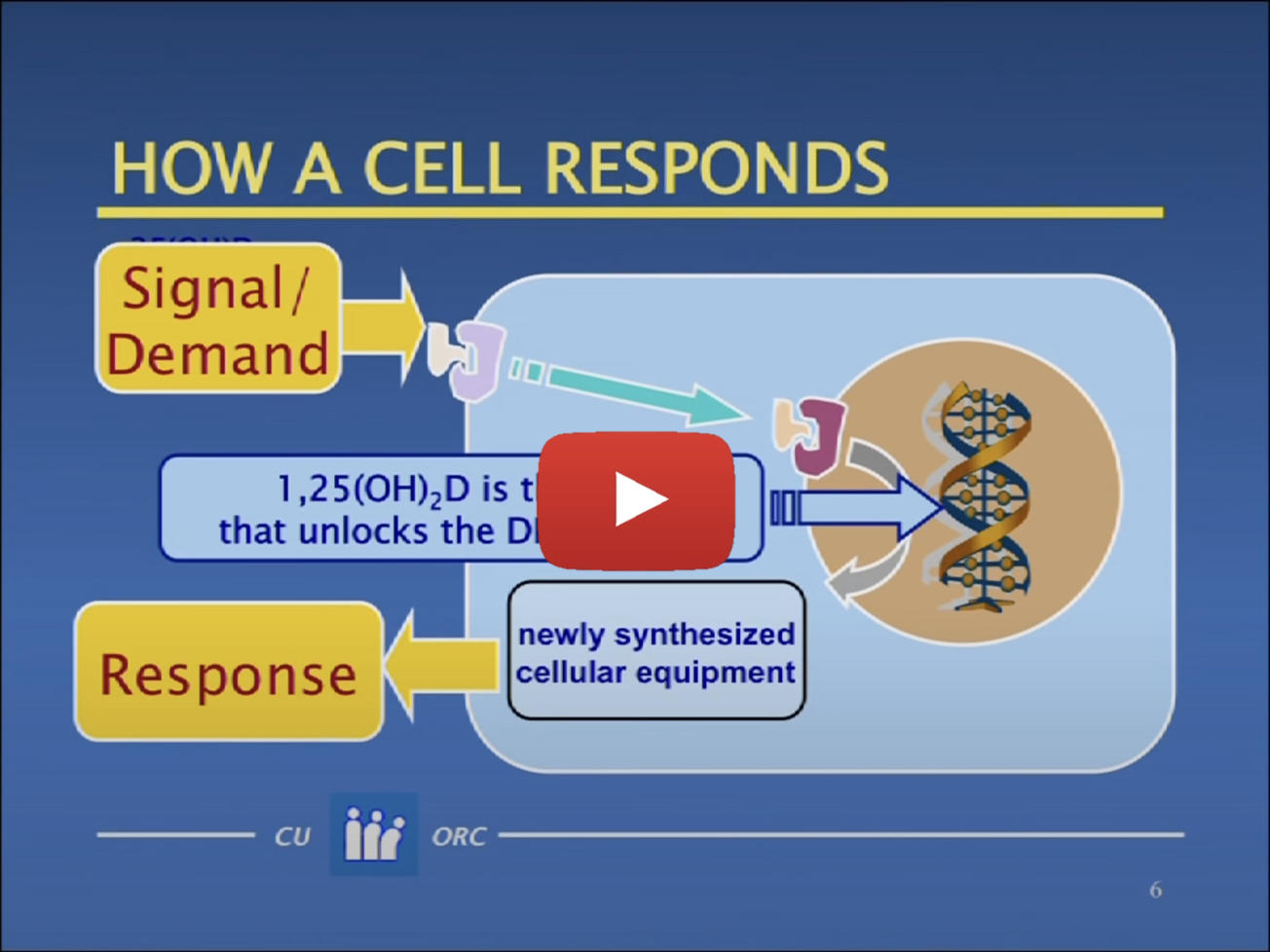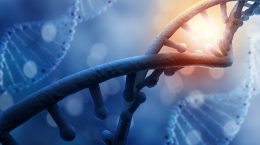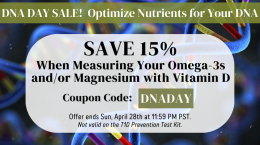Published on April 25, 2024
15% Off for DNA Day! Help protect your DNA and improve its utilization by ensuring adequate concentrations of vitamin D, magnesium and omega 3s
Key Points
- One of the most important functions of vitamin D is to enable access to the information stored within DNA for a cell’s proper response to routine signals and stimuli, processes that occur constantly within every body tissue; adequate concentrations of vitamin D are necessary to enable a full and proper response
- Immune cells can become activated with vitamin D and vitamin D can inhibit cancer cell growth, just a few examples of processes that are turned on or off by the action(s) that vitamin D has on specific genes within those cells
- A significant “dose-dependent” effect was observed for gene expression at all levels of vitamin D intake, meaning the higher the dose the more genes that were affected
Get 15% Off When Measuring Omega-3s and/or Magnesium with Vitamin D; Code DNADAY
 Vitamin D plays a key role in the expression of our genes, and therefore, in the many complex cellular pathways involved in all systems throughout the body.
Vitamin D plays a key role in the expression of our genes, and therefore, in the many complex cellular pathways involved in all systems throughout the body.
One of the most important functions of vitamin D, as described by Dr. Robert Heaney in the video below (from 1:26 to 6:48), is to enable access to the information stored within DNA for a cell’s proper response to routine signals and stimuli, processes that occur constantly within every body tissue. Adequate concentrations of vitamin D are necessary to enable a full and proper response; when vitamin D concentrations are inadequate, so is the cell’s ability to respond, resulting in limited output and function.
Watch Vitamin D, Sunshine, and Optimal Health: Putting it all Together, one of our all-time favorites here at GrassrootsHealth. We encourage you to watch the full video, starting with his very excellent yet short and simple explanation of how vitamin D interacts with our DNA.
Dr. Robert Heaney Explains How Vitamin D is Important for Accessing Our DNA
Vitamin D is Needed to “Turn Genes On or Off”
Approximately 3000 genes (and possibly more!) are affected by the activated signaling molecule form of vitamin D [1,25(OH)2D], and at least 160 biological pathways are influenced by vitamin D supplementation. We have recently discussed how immune cells can become activated with vitamin D and how vitamin D inhibits cancer cell growth, all processes that are turned on or off by the action(s) that vitamin D has on specific genes within those cells.
Another video presentation by Dr. Michael Holick, Vitamin D Linked to Gene Expression, explains findings from a previous study conducted showing how different doses of 400 IU or 2,000 IU vitamin D supplementation per day affected the genetic expression and resulting biologic function within certain immune cells. After conducting that study, the hypothesis remained that further changes in gene expression would be seen with doses greater than 2,000 IU/day; this hypothesis was put to test in a follow-up study by Shirvani et al. which enrolled 30 healthy individuals to take either 600, 4000 or 10,000 IU of vitamin D per day for 6 months.
This study found a 4-fold greater effect on gene expression among those who took 10,000 IU of vitamin D per day for 24 weeks (with approximately 1,200 genes affected), compared to those who took 4,000 IU per day (with approximately 300 genes affected). The difference between the 600 IU dose (with approximately 150 genes affected) and 10,000 IU per day was 8-fold greater. A significant “dose-dependent” effect was observed for gene expression at all levels of vitamin D intake, meaning the higher the dose the more genes that were affected. There was variation between individual responses, however, with some participants having a stronger genetic response to vitamin D than others despite similar changes in vitamin D levels.
A final video by Dr. Patrick McCullough, How Vitamin D Affects Genetic Expression, reviews the findings from the Shirvani et al. study and its implications for health outcomes. Watch the video here.
Get 15% off when measuring your omega-3s and/or magnesium with vitamin D when using the code DNADAY – now through this weekend only.
Order Now with Code DNADAY for 15% Off
What Are Your Levels?
As part of the GrassrootsHealth D*action project, you can measure your:
- Vitamin D
- Magnesium PLUS Essential and Toxic Elements
- Omega-3 Fatty Acids
- hsCRP
- HbA1c
- TSH
- Type 1 Diabetes Autoantibodies
Take steps to improve the status of each of these measurements to benefit your overall health. You can also track your own intakes, symptoms and results to see what works best for YOU.
Enroll and test your levels today, learn what steps to take to improve your status of vitamin D (see below) and other nutrients and blood markers, and take action! By enrolling in the GrassrootsHealth projects, you are not only contributing valuable information to everyone, you are also gaining knowledge about how you could improve your own health through measuring and tracking your nutrient status, and educating yourself on how to improve it.







